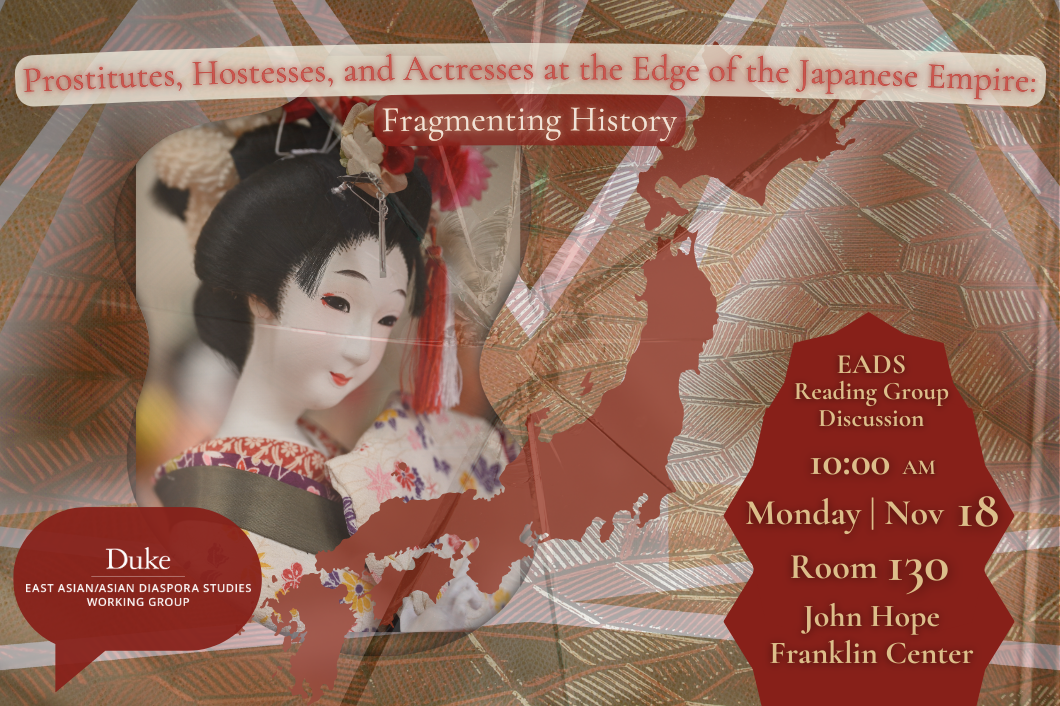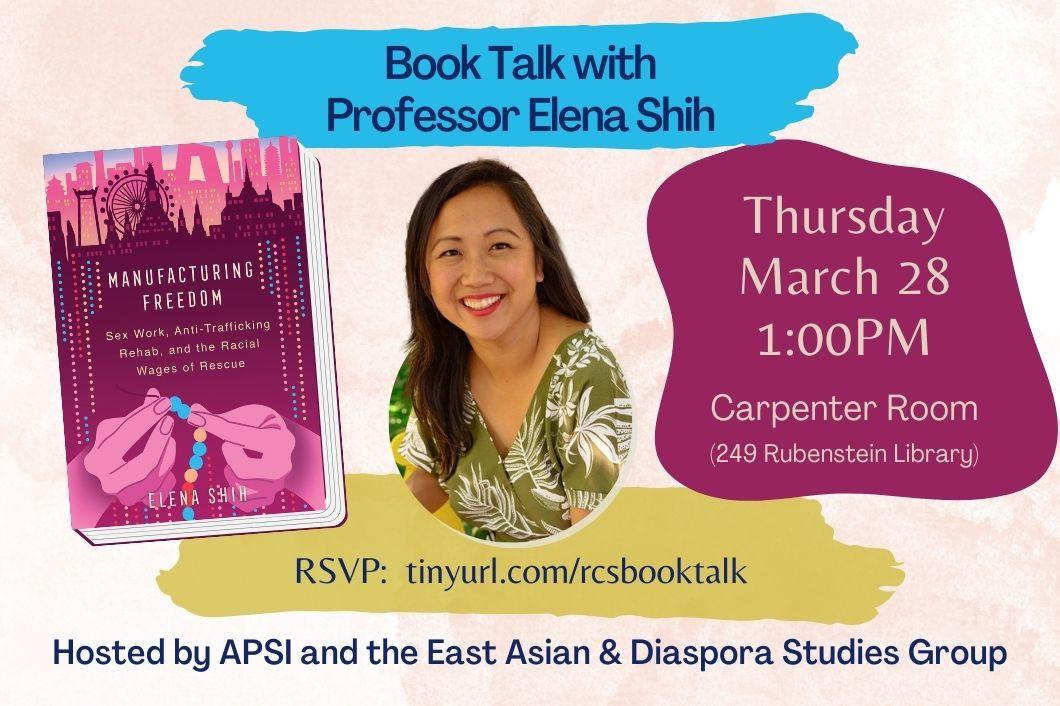
East Asia and Asian Diaspora Studies Graduate Student Working Group
Timeline
Status: Active Cluster
Description
Coordinators:
|
Image
 |
Image
 |
Image
 |
Image
 |
| Mariko Azuma | Mingkang Hao | Faye Ma | Jaeyeon Yoo |
About the cluster:
EADS is a student-led space for humanities and social sciences graduate students working on topics related to East Asia and/or East Asian diaspora at Duke University. It was conceptualized in 2021 and launched in 2022 by graduate students seeking to foster a graduate student community representing multiple disciplines whose work advances East Asia and Asian diaspora studies through academic workshops and social gatherings as well as debriefs.
In 2024-2025, the group will continue its work connecting with both established and junior scholars so that graduate students as well as postdoctoral researchers at Duke have an opportunity to network with peers at other institutions and ask questions that will help them progress to the next stage of their academic careers.
Another critical aspect of EADS’ work is providing opportunities for graduate students to receive constructive suggestions from one another as they prepare for academic conference presentations and advance thesis projects. By establishing a process for multidisciplinary feedback, students are prepared to address how their work speaks not only to their chosen discipline but engages complementary fields of research, strengthening scholarship of East Asia and the Asian diaspora as a whole.
Cluster Events and Activities:
At EADS events, Duke PhD and MA students at any stage are invited to share resources, workshop projects, network, and engage in conversations. Some events are member-focused; others are public-facing. EADS also periodically invites scholars from other institutions to visit Duke to meet with the group and to advance new perspectives on emerging research related to Asian and Asian diaspora studies.
This working group is committed to an interdisciplinary, transnational, and translingual approach; it seeks to help members rethink the relations between ethnic studies and area studies and to challenge U.S.-centrism in knowledge production and scholarly political engagement.
Here are a few of the group's recent events:




